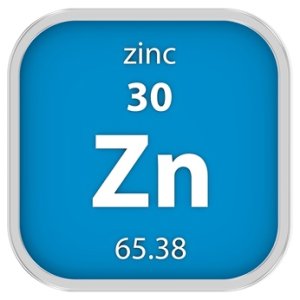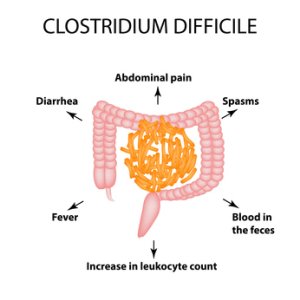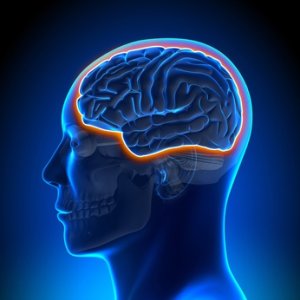Zinc counteracts infections, eczema, and herpes and deficiencies are common
 Zinc strengthens the immune defense and controls inflammatory conditions such as eczema. According to a Finnish meta-analysis, high-dosed zinc supplements can help the immune defense fight a regular cold much faster. It turns out that there are widespread zinc deficiencies. First of all, sugar, birth control pills, inorganic iron supplements, and normal ageing processes impair the body’s zinc uptake. Secondly, it may be difficult to get enough zinc if you are on a vegetarian or vegan diet. Not only does a zinc deficiency have a negative effect on your immune defense and skin health, it also upsets the countless enzymatic processes in which zinc is involved.
Zinc strengthens the immune defense and controls inflammatory conditions such as eczema. According to a Finnish meta-analysis, high-dosed zinc supplements can help the immune defense fight a regular cold much faster. It turns out that there are widespread zinc deficiencies. First of all, sugar, birth control pills, inorganic iron supplements, and normal ageing processes impair the body’s zinc uptake. Secondly, it may be difficult to get enough zinc if you are on a vegetarian or vegan diet. Not only does a zinc deficiency have a negative effect on your immune defense and skin health, it also upsets the countless enzymatic processes in which zinc is involved.
Read more about how zinc counteracts infections, eczema, and herpes
- Created on .











 Even if you eat a healthy and balanced diet, it can be difficult to get enough selenium because of climate changes and nutrient depletion of the soil, especially in Europe. This was shown in a study conducted by Swiss scientists. Selenium is very important for the immune system, but how much do we need to be optimally protected against infections? There also appears to be a connection between widespread selenium deficiency and the increased rate of cancer.
Even if you eat a healthy and balanced diet, it can be difficult to get enough selenium because of climate changes and nutrient depletion of the soil, especially in Europe. This was shown in a study conducted by Swiss scientists. Selenium is very important for the immune system, but how much do we need to be optimally protected against infections? There also appears to be a connection between widespread selenium deficiency and the increased rate of cancer. It is hardly a coincidence that so many of us contract virus infections in the course of the winter. It is because we lack vitamin D, which we are unable to synthesize when the sun sits too low in the sky. Danish scientists have discovered how vitamin D activates the immune system, and a comprehensive meta-analysis shows how vitamin D supplements can prevent colds, flus, and related complications.
It is hardly a coincidence that so many of us contract virus infections in the course of the winter. It is because we lack vitamin D, which we are unable to synthesize when the sun sits too low in the sky. Danish scientists have discovered how vitamin D activates the immune system, and a comprehensive meta-analysis shows how vitamin D supplements can prevent colds, flus, and related complications. During the winter period, many of us have runny noses and some may end up in bed with a bout of flu. Now is the time to prime your immune system by getting all those vitamins and minerals that your diet is not always able to provide you. That way you can ward off germs and avoid unnecessary sick days. But what effect does vitamin C, vitamin D, selenium, and zinc have on the immune system’s different “troops”, and how much do we need?
During the winter period, many of us have runny noses and some may end up in bed with a bout of flu. Now is the time to prime your immune system by getting all those vitamins and minerals that your diet is not always able to provide you. That way you can ward off germs and avoid unnecessary sick days. But what effect does vitamin C, vitamin D, selenium, and zinc have on the immune system’s different “troops”, and how much do we need? Clostridium difficile is a bacterium that causes diarrhea and intestinal infection. The infection may even be life-threatening. A new American study that is published in PLoS Pathogens shows that this bacterium can only thrive with an overload of calcium in the intestinal system. Such a calcium excess can be caused by overconsumption of calcium, lack of vitamin D, and regular use of antacids.
Clostridium difficile is a bacterium that causes diarrhea and intestinal infection. The infection may even be life-threatening. A new American study that is published in PLoS Pathogens shows that this bacterium can only thrive with an overload of calcium in the intestinal system. Such a calcium excess can be caused by overconsumption of calcium, lack of vitamin D, and regular use of antacids. Researchers from Sweden and England have discovered a link between vitamin A and diabetes. According to their new study, vitamin A is essential for enabling pancreatic beta cells to produce insulin, the hormone that helps cells take up sugar. This discovery could open new doors to better diabetes therapies in the future. However, it is also important to focus on diet, weight management, and the intake of other nutrients like chromium for proper blood sugar control, which is necessary for preventing and treating diabetes.
Researchers from Sweden and England have discovered a link between vitamin A and diabetes. According to their new study, vitamin A is essential for enabling pancreatic beta cells to produce insulin, the hormone that helps cells take up sugar. This discovery could open new doors to better diabetes therapies in the future. However, it is also important to focus on diet, weight management, and the intake of other nutrients like chromium for proper blood sugar control, which is necessary for preventing and treating diabetes. Climate changes and soil depletion increase the risk of selenium deficiency, especially in Europe as shown by Swiss scientists. Selenium is an essential nutrient, and existing studies clearly show that low selenium intake increases the risk of cancer, metabolic disorders, impaired immunity, poor sperm quality, and atherosclerosis. Selenium deficiencies are therefore to be taken seriously and should be prevented one way or another. A good way to get enough of the nutrient is by taking a high-quality selenium supplement.
Climate changes and soil depletion increase the risk of selenium deficiency, especially in Europe as shown by Swiss scientists. Selenium is an essential nutrient, and existing studies clearly show that low selenium intake increases the risk of cancer, metabolic disorders, impaired immunity, poor sperm quality, and atherosclerosis. Selenium deficiencies are therefore to be taken seriously and should be prevented one way or another. A good way to get enough of the nutrient is by taking a high-quality selenium supplement. Despite official recommendations to give infants a daily vitamin D supplement, nearly 50% of parents forget to follow this advice according to a large new Danish study. Not only do the children risk weak bones, it also increases their risk of infections and autism, other studies suggest.
Despite official recommendations to give infants a daily vitamin D supplement, nearly 50% of parents forget to follow this advice according to a large new Danish study. Not only do the children risk weak bones, it also increases their risk of infections and autism, other studies suggest. It is common knowledge that omega-3 fatty acids are vital for our brain development and nervous system. Now, researchers from Harvard Medical School in the United States have discovered that they also play an important role in maintaining the blood-brain barrier that protects the central nervous system against bacteria and toxins.
It is common knowledge that omega-3 fatty acids are vital for our brain development and nervous system. Now, researchers from Harvard Medical School in the United States have discovered that they also play an important role in maintaining the blood-brain barrier that protects the central nervous system against bacteria and toxins. "After about one week of taking the Q10 supplement I could feel a huge difference," says 23-year old Alan Piccini, who has been suffering from extreme fatigue and muscle aches ever since he was a child.
"After about one week of taking the Q10 supplement I could feel a huge difference," says 23-year old Alan Piccini, who has been suffering from extreme fatigue and muscle aches ever since he was a child. “Taking capsules with co-enzyme Q10 has freed me of the severe side effects of my cholesterol lowering medicine,” Mrs Franken explains.
“Taking capsules with co-enzyme Q10 has freed me of the severe side effects of my cholesterol lowering medicine,” Mrs Franken explains.